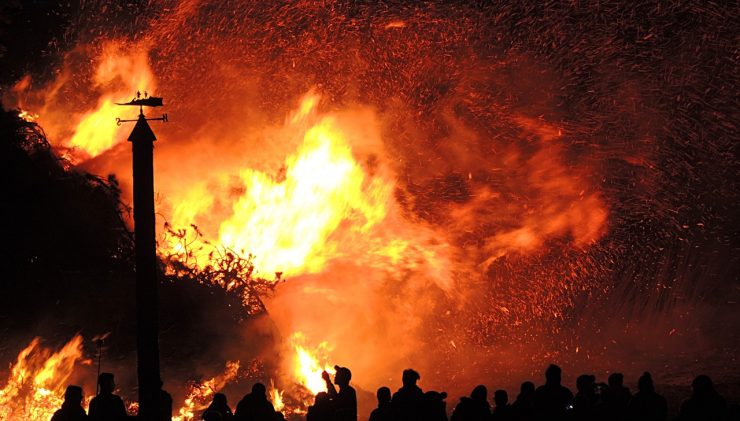 April Marks Distracted Driving Awareness Month
April Marks Distracted Driving Awareness MonthAccording to the National Interagency Coordination Center’s Wildland Fire Summary and Statistics Annual Report, 67,743 wildfires occurred in the United States during 2016 fire season. A total of 5,509,995 acres burned. In addition to land, wildfires destroyed 4,312 structures, including 3,192 residences.
Wildfires can start in many ways. Some causes, such as arson and improper cigarette disposal, are the fault of humans. Others, such as lightning strikes, are completely natural. Regardless of the cause, wildfires are devastating. The good news is that there are steps you can take to prepare.
- Understand Your Risk.
Some areas have a particularly high risk of wildfires. If you live in one of these areas, extra precaution is needed. A map developed by the USDA Forest Service and Fire Modeling Institute shows that certain southern states, especially Florida, and western states, especially California, have a very high potential for wildfires. Even outside of these areas, however, a wildfire is possible.
- Create A Plan.
Create an evacuation plan in case a wildfire forces you out of your home.
You need at least two evacuation routes in case fire blocks one. Also discuss where you plan to meet and how you will contact each other if you get separated. If you need a place to stay, you can find Red Cross shelters here.
Have emergency supplies ready to go, including a first-aid kit and any medical supplies your family needs. Don’t forget to make plans for your pets, too. You need carriers, food and any medications for them as well.
- Stay Alert.
Don’t be caught unaware. The more warning you have, the more time you’ll have to take precautions to protect yourself, you family and your property. To make sure nothing gets past you, you can also receive alerts through your phone. The Ready for Wildfire app lets you sign up for wildfire alerts. The Wildfire app alerts you to any nearby dangers including fires as well as criminal activities.
- Protect Your Property.
If you know a wildfire is threatening your property, CAL FIRE recommends taking several steps as long as you have time to do so safely. These steps include the following:
- Shutting windows
- Turning off the air conditioning, gas and propane tanks
- Removing curtains from your windows
- Moving flammable items to safer locations
For the complete list, visit readyforwildfire.org.
- Review Your Insurance.
Most homeowners and business property insurance policies cover fire. Check your policy to make sure you are protected. Also check your limits and talk to your Heffernan agent to ensure your coverage is adequate.



